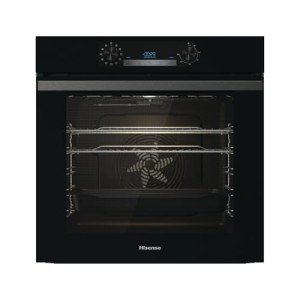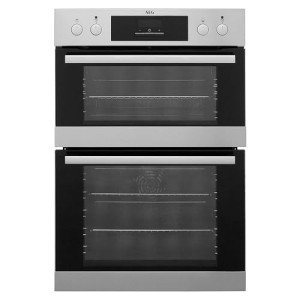A New Trend In Built In Oven
페이지 정보

본문
The Ultimate Guide to Buying a Built-In Oven
In the realm of modern-day cooking appliances, built-in ovens stick out for their seamless integration into kitchen cabinetry, visual appeal, and advanced cooking technologies. They provide a variety of features and a streamlined design, accommodating both culinary enthusiasts and everyday cooks. However, similar site picking the right built-in oven can be daunting given the multitude of choices available in the market. This article serves as a thorough guide, highlighting key factors to consider when acquiring a built-in oven, popular functions, and responses to often asked questions (FAQs).
Why Choose a Built-In Oven?
built in oven uk-in ovens use various advantages, including:
- Space Efficiency: They are designed to suit existing cabinets, enhancing kitchen space.
- Aesthetic Appeal: With a range of styles and surfaces, built-in ovens enhance the general appearance of a kitchen.
- Advanced Features: Many come equipped with state-of-the-art technology, making cooking simpler and more precise.
- Personalization: Built-in ovens can be installed at eye level or below counter height, offering flexibility based on personal choice.
Key Considerations When Buying a Built-In Oven
Here are very important elements to think about before making a purchase:
1. Size and Dimensions
Before choosing a built-in oven, it is crucial to measure the offered area. Requirement built-in integrated ovens generally fall under 2 primary categories:
| integrated oven and grill Size | External Dimensions | Internal Capacity |
|---|---|---|
| Single | 24-30 inches large | 3-5 cubic feet |
| Double | 30-36 inches wide | 5-10 cubic feet |
Guarantee that the picked model fits your kitchen cabinetry both in width and height.
2. Type of Oven
Built-in ovens come in various types, including:
- Conventional Ovens: Uses heating components above and below for basic baking and roasting.
- Convection Ovens: Employs a fan to distribute hot air, offering even cooking.
- Wall Ovens: Installed vertically at eye level for easier gain access to.
- Steam Ovens: Uses steam to prepare food, protecting nutrients and moisture.
3. Fuel Type
Built-in ovens are available in various fuel types:
- Electric: Often heats up more equally, ideal for baking.
- Gas: Offers immediate temperature level control, excellent for roasting and broiling.
- Dual Fuel: Combines the very best of both worlds with a gas cooktop and electric oven.
4. Features and Technology
Modern built-in ovens included a myriad of functions that enhance the cooking experience:
- Smart Technology: WiFi-enabled designs allow users to control the oven remotely via an app.
- Self-Cleaning: Reduces the effort needed to maintain a tidy oven.
- Delay Start: Lets you configure the oven to begin cooking at an established time.
- Multiple Cooking Modes: Options for baking, broiling, roasting, and more.
5. Brand name and Price
Picking a respectable brand name can guarantee quality and reliability. Relative prices amongst different brand names can assistant in decision-making. Here's a short introduction of popular brands and their price varieties:

| Brand | Avg. Rate Range | Notable Features |
|---|---|---|
| Bosch | ₤ 1,000 - ₤ 3,000 | sleek built in ovens design, trustworthy performance |
| Whirlpool | ₤ 800 - ₤ 2,500 | User-friendly controls |
| KitchenAid | ₤ 1,200 - ₤ 3,500 | Innovative features, stylish designs |
| GE Appliances | ₤ 900 - ₤ 2,800 | Variety of sizes and options |
Installation Considerations
Setup of a built-in oven is a key aspect that needs to not be neglected. It's extremely recommended to work with an expert when installing a built-in oven. They can attend to electrical or gas line concerns and ensure that the oven is fitted firmly in the kitchen cabinetry.

Maintenance Tips
Maintaining a built-in oven is necessary to prolong its life expectancy and efficiency.
- Clean Regularly: Wipe down surfaces and prevent letting spills end up being baked-on.
- Use Appropriate Cookware: This avoids damage to interior surfaces and boosts cooking effectiveness.
- Check Seals: Inspect the door seals routinely for wear and tear to maintain energy effectiveness.
FAQs About Built-In Ovens
1. How do I know which size built-in oven to buy?
Measure the space you have offered and compare it to the oven measurements. Requirement sizes generally range from 24 to 30 inches for single ovens.
2. Can I install a built-in oven myself?
While it's possible to set up a built in electric oven-in oven without expert assistance, employing an experienced technician is advised for safety, particularly with gas or electrical connections.
3. What is the average lifespan of a built-in oven?
Usually, built-in ovens last about 10-15 years with appropriate maintenance.
4. Are built-in ovens energy efficient?
Energy efficiency varies by design. Try to find energy ratings or eco-friendly features when choosing an oven.
5. Do built-in ovens need unique cabinets?
Yes, they are designed to fit specific kitchen cabinetry sizes. Make sure the cabinets is built to accommodate the wanted oven's measurements.
A built-in oven is an excellent financial investment that can significantly boost your cooking experience and kitchen aesthetic. With different sizes, types, and advanced functions, comprehending your requirements and choices is vital for making the right choice. By thinking about measurements, fuel type, and brand name reputation, you can with confidence pick a built-in oven customized to your lifestyle. Ultimately, a well-chosen built-in oven will not only elevate your culinary abilities however also work as a stunning focal point in your kitchen for many years to come.
- 이전글작업 대출 [ 카톡 HP43] 연체자작업대출업체 사업자작업대출업체 무직자작대가능한곳 무직자작업대출가능한곳 25.05.18
- 다음글The Reason The Biggest "Myths" About Small Built In Microwave Might Be True 25.05.18
댓글목록
등록된 댓글이 없습니다.